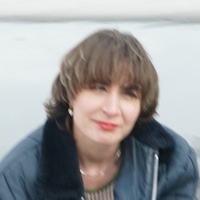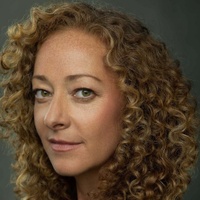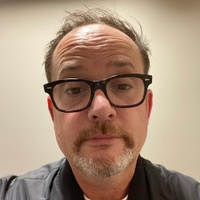As told to Emma Ingrisani, 2871 words.
Tags: Music, Poetry, Performance, Process, Inspiration, Beginnings, Mental health.
On making art that grounds you
Musician Mary Jane Dunphe discusses performance, craft, and finding joy in what you do.Something I think is very cool about your work is the way words and music and movement are enmeshed. I wanted to ask specifically about language and literature—your formative interests in that.
I went to Evergreen State College [in Olympia, WA]. I had a focus in creative writing and aesthetic theory. Which is such a funny thing, to be like, “aesthetic theory,” but that’s the title I chose to encompass all that I studied. When I was in school full-time, I was also doing my old punk band, Vexx, but then I also was doing CC Dust after that. It was a wild thing to balance, but the only way was to integrate it, so I could use the music to metabolize the things I was learning. I don’t know—it’s easier to remember things when you transform them into narratives.
There were CC Dust songs where I was learning about the Frankfurt School, and reading Derrida, and being like, “Dance the orange,” which is a Rilke line. “Dance the orange, but can you prove to them, your moves exist outside you, evidence the spirit forced through, only ruled by time.” I was using Derrida quotes and Rilke, and in CCFX, I took old Emily Dickinson stanzas and changed a few words, and then combined them into the song.
But it’s really important that I have an emotional connection to what I’m singing, or some kind of heartfelt connection, otherwise I don’t do a good job at it. I learned that pretty early on, being in bands. And it’s the best kind of song if the meaning can change over time.
And theory can feel very cold and remote from sensation or feeling. It seems like a really interesting way to transform it a bit, like you said.
When I was studying these dense texts, I was constantly feeling like my head was floating a foot above my body. So it was good to have this physical practice, and also to put these things into songs, and to try to render down the poetry, and fucking Adorno if you can, which I feel like I tried. That was the only way I went through it.
I didn’t even want to go for writing. I wanted to go for performance studies, but all of the performance and dance classes there were only one or two credits, and taught by people that wanted you to crawl around on the floor. So I was like, “What’s the second-most humiliating, challenging, performative thing I could do? Definitely writing,” because a blank page is humiliating. And that goes for songwriting, too. You have to be quiet. You have to face the emptiness and then fill it in. There’s no rules. It’s very confrontational. [laughs]
Was dance something you’d done at all formally before you started playing in bands?
No, I did it informally before I played in bands. I kind of ran away from home when I was in my late teens, and then I was homeless for a few years. That’s a whole long story. But I eventually ended up in Olympia when I was 20.
I didn’t have any formal training, but I did have my friend, Reid Urban. We started this weird group together where we would do made-up dance? It sounds so cringey, but it was so fun, and somehow Olympia is such a freakish place that we could do these performance art pieces that were not taking ourselves too seriously, but definitely very sincere, in the middle of a punk show or at a noise show. Or the noise show is the punk show, is the show where the performance art is happening. That was part of why Olympia was so cool when I first got there. Everyone was like, “Hell yeah!” [laughs] That was when I first started dancing.
Olympia is… I always think of it like a vortex, that people spin into and spin out of, every four to six years. Tobi Vail is one of those people who’s been there the whole time. No one’s famous in Olympia because it’s a small town, so she saw every single band I’ve ever been in since I was doing the weird performance art stuff. Dave Harvey has recorded almost every band out of Olympia, definitely since I lived there and before, in a fully analog studio that he made incredibly affordable for the underground community. That’s probably why there’s still music there today, and it didn’t just die out in the early 2000s or whatever.
How did those early forays in music and dance turn into an artistic practice?
Like I said, I left home at a young age, and it was obviously for a reason. Then I spent years being transient. I know this doesn’t seem like it connects, but it does. I lived in California briefly, but not really in a real room. Olympia was the first time I had a room of my own since I was a sophomore in high school, because where I grew up, in Spokane, we had to rent out my bedroom to make rent. So I lived in the living room up until I left, as a teenager, which isn’t very fun, with no heat. It was crazy. I love my mom. She’s a great mom. But it was, and continues to be, hard times.
Olympia was the first time I had a room of my own, and a landing, and I started doing this performance art and experimental music. And it really was all of this—I hate using the word because it doesn’t feel like a real word anymore, because people use it so flippantly—but all of this capital-T Trauma was coming out in a way that was unwielded, unwieldable energy, just coming out everywhere. Then Mike [Liebman] and Corey Rose [Evans] saw it, and they were like, “Well, if she could do that, she could front a punk band,” and they asked me to play in Vexx. It became more refined with Vexx, my stage performance, but I did move so much.
First, it was this explosion of energy that I’d been holding in for so long, and then it had sort of a negative charge to it. Not to say that Vexx was a negative band, but it was a lot of volatility, and self-negation, and self-possession. I was headbutting people a lot, I was rolling around. I mean, punk is great because you can get out these self-destructive tendencies in a controlled setting where no one’s actually getting that hurt. Eventually, I would feel so emotionally exhausted after performances.
Then I realized that I needed to pull back, or slow down with my movements. You don’t need to have a constant cathartic state. That’s not really sustainable. I started CC Dust with my friend David Jacques. I was like, “I want to learn how to write songs,” and so did he—and play all the instruments. I wanted to make sweet music. I wanted to make sincerely sweet music, and I wanted to slow down what I was doing. That was the evolution from the volatile performance state I was in with Vexx.
The day after the last CC Dust show, I was planning on moving to New York, but then I broke my ankle. I wrote the CCFX EP while I had the broken ankle. I wrote The County Liners EP with my roommate, Chris [McDonnell], during the broken ankle, and a Gen Pop seven-inch, all in three months. It delayed me going to New York. And it made me write the lyric for “The One to Wait,” which is about not knowing when you need to go, not knowing when the right timing is, but you can’t guess too late about it. It was like a goodbye song while I was still stuck in this bed. All of my savings I had to move across the country were used to pay my rent, because I didn’t get any unemployment. Then I move here, CCFX breaks up within a year, and I had to start all over again.
Now I’m at a place where I’m 33. It takes so much longer than you think sometimes to get a perspective on your life. Performance isn’t an alter ego. It’s just a facet or a looking glass for me. There’s a Gene Clark song called “The True One.” He says, “There’s always a reality to what you’re doing, but sometimes it’s so hard to see which one is the true one.” I think about that every day. You really got to stay on it, clarifying and reframing your perspective, always, because once you think you know, you’ve stopped knowing yourself.
I think that comes through, too. I’ve seen you perform live a couple of times, and it’s affecting, emotionally affecting, the way you use movement onstage. It seems like an important piece, to recognize where the creative impulse can come from.
I don’t really consider myself a dancer because I’m not formal, and I’m pretty clumsy, and I’m so dyslexic when it comes to choreography, even though I try to go to classes every now and then. But it’s so important to me in performing, I think, because I am still dealing with a lot of stuff from my past, as everyone is. A lot of it is pretty extreme, and it causes me to not feel like I’m inside my body. I’ve just been shaking myself back into it, or shoving my head back down onto my shoulders, or stomping my feet back down onto the ground, every single time I play.
I always think about flamenco and how they talk about the duende. The duende is what makes you play. It’s this idea that this little demon crawls into your body through your foot, and then runs up and down inside of you and causes horrible anguish. The only way to quell the duende is by playing the flamenco. You’re not making art because you like it. You’re just doing it to feel less bad. [laughs] I’m not trying to be so dark, but I think it’s funny, and it really rings true half the time. Sometimes it’s like pulling teeth, but it’s the only thing that’s going to make me feel less bad, or make me feel better, or have some new perspective or insight, or make me feel more integrated back into the world and reality in a way that I can drift away so quickly sometimes without it. It’s grounding.
With your new solo album, how did you approach starting it? How do you tend to write songs?
Oh, god, it changes all the time. “Opening of a Field,” I started with a synth lead, but a synth lead might turn into a guitar lead, and I’ll transpose it. I was certainly having a hard time writing the first song, because I didn’t even know what I wanted my own music to sound like, which is part of why the album has a lot of different textures to it. But I was like, “Oh, I want to make a pop song that feels like it’s in the shape of a field,” so there’s no first chorus, verse. It kind of opens more and more, and you enter into the field more and more as the song goes on.
“Just Like Air” was the drums first and that little plucky harp sound, or right now, I’ve been obsessed with writing from the bass first. “Longing Loud” was the last song I wrote for the album, and there’s these two kind of intertwining, harmonizing bass leads.
Sometimes it’s vocals first. “Never Going to Die,” the CC Dust song, that was vocals first. “Starless Night,” the last song on the album, was all vocals first, just written on my bicycle at night during 2020, because I would just ride around, all the time, and especially if it was raining, and quarantine, and nighttime, you had the whole city to yourself. So I would go outside on my bicycle and sing, and no one was there to hear me. It was the most privacy I ever had in New York.
The idea for the “Always Gonna to Be the Same” music video came from that same year, too. I would ride my bicycle at night, no helmet on, very stupid, I hope my mom doesn’t read this. And be dancing with my arms [laughs], just be lowercase-v vogueing around the town, listening to music or thinking of songs.
How did you decide when it was done?
When I had enough songs [laughs]. There were a lot of delays too, because of COVID, and then I went to LA to record two or three songs, and on the plane, my face kind of…I had a crazy infection that made me stay there much longer. And then I lost my voice for like nine months, from the infection in my face. It was in my sinuses, and liquefying the bones in my skull and dripping back onto my vocal cords. So even after I finished enough to play, I couldn’t even play the songs for almost a year. I had to get so many surgeries. So much antibiotics.
Me and my manager Pam, we shopped it around to all of these indie labels, and no one really picked it up. And then I met Justice [Tripp] when I was in California recording. He instantly was so nice and became my friend, and came to the recording sessions while I was writing in the studio. And then, maybe a couple of years later—my friend Sam Bosson does drum tech for Turnstile, so I got to go see them and meet Brendan [Yates]. I was like, “I’m a big fan,” and he was like, “I’m a fan.” And then we became friends. Brendan and Daniel Fang and Justice all asked me if they could put out my album on their label Pop Wig. And if they hadn’t asked me, I really don’t know how it would’ve come out, who would’ve put it out.
Ultimately, I’m just so appreciative of them. It’s kind of nice to be on an up-and-coming, smaller label that’s built on a group of friends, you know, and has a built-in community that isn’t so alienated from itself. I just really want to say that, and that I appreciate them so much for honestly just believing in me, because I can only do that part-time. It’s nice if someone does it while you can’t.
Do you have any advice, or a perspective at this point, on being a working musician, and finding a balance in that?
I think I’m just looking for advice [laughs]. Come from a family with money, but I don’t have that. If not—you know what the best advice is? Make do with what you have. People always feel like they need all this gear. Also, people talk shit on people that make music on their computers—“They’re only using a Roland JD-Xi,” or “They don’t have a Juno,” or whatever. But that’s honestly pretty classist, I think. And you can make so much beautiful music with so little.
You could get a field recorder. You could record field recordings on your phone and integrate them with the samples and sounds that you’re getting from your computer, or the free analog synth VSTs that you’re downloading. There’s so many possibilities. The parameters are not based on having a Gibson SG anymore. You don’t need it, and I think that kind of mentality is obsolete. I really do.
You don’t have to make something that you need to show someone immediately. Just play. Music is literally the only form of art where the verb to do it is play. I sound like a sixth grade music teacher, but that is such a good thing to remember. You’re playing. It doesn’t have to be the work at the end of all the work you did just to pay for your cigarette-box room that you live in in New York—as I’m in my tiny room [laughs]. It should be the point of relief. Put joy back. I don’t know.
After I said earlier that it’s the only thing I do to make me feel less bad, and not something that brings me joy! That’s also—it’s the relief. It can be whatever you want. Just don’t make any excuses on why not to do it. And don’t get caught up with the ways you need to show it.
I just said the corniest shit ever, but all of it’s very true, I think.
That seems like a great place to end up here—from pain, as you said, to possibility and joy.
Yeah. Just playing around.
Mary Jane Dunphe Recommends:
True Body (band)
Walks
Margery Kempe by Robert Glück
Stomping your feet on the ground when you drink too much coffee
Patrolling dawn with your friends




